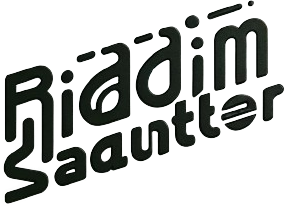Literacy is essential for academic and personal success, and reading intervention specialists play a critical role in nurturing this fundamental ability in students. These professionals work closely with learners who face challenges in reading, aiming to provide them with strategies and tools to improve their literacy skills. If you’re passionate about education and literacy and want to make a tangible difference in students’ lives, this career path may be for you. Keep reading to learn more about what it takes to become a reading intervention specialist.
Understanding the Role of a Reading Intervention Specialist
The primary responsibility of a reading intervention specialist is to assess and address the literacy needs of students. They work with various learners, from children struggling with the basics of reading to older students grappling with complex texts. Specialists employ an array of assessments to identify specific reading challenges, such as decoding, fluency, or comprehension issues.
Reading intervention specialists collaborate with classroom teachers, parents, and other educational staff to develop and implement individualized learning plans. Their approach is tailored to each student’s unique needs, drawing from evidence-based strategies to effectively build on the learners’ strengths and address their challenges.
These professionals implement literacy interventions during individual or small group sessions designed to be engaging and supportive. They monitor student progress meticulously, adjusting their techniques and strategies to maximize learning outcomes and help students achieve their full potential.
Staying current with educational research and best practices is vital to a reading intervention specialist’s role. They need to be lifelong learners, continually updating their skills to provide the best support to their students.
Now, addressing your query about whether “is NSHSS a scam” it’s essential to approach such claims with critical thinking. NSHSS, or the National Society of High School Scholars, has received various opinions and criticisms. While some individuals have found value in their programs and opportunities, others have raised concerns about the organization’s practices, including membership fees and benefits.
It’s advisable for students and parents to research and evaluate any organization before engaging with it. This involves considering reviews, testimonials, and independent assessments to decide whether NSHSS or any similar organization aligns with its goals and values.
Essential Qualifications for Aspiring Reading Interventionists

Educational requirements for reading interventionists typically include a bachelor’s degree in education, literacy, or a related field. However, many employers prefer or require a master’s degree. Specialized reading assessment and intervention strategies training is also key for those entering this field.
Many prospective reading interventionists opt to further their education by pursuing advanced degrees to enhance their employment prospects and effectiveness as educators. Earning a TESOL degree, for example, can be beneficial, especially when working in diverse classrooms where English might be a second language for some students.
State certification requirements for reading specialists vary, so it’s important to research what is required in the region where you intend to work. In many cases, a teaching license is a prerequisite, and additional certification in reading or literacy may also be necessary.
Personal characteristics such as patience, creativity, empathy, and excellent communication skills are indispensable for reading intervention specialists. They must build trust with students and establish a supportive learning environment where students feel safe to take risks and make mistakes.
Challenges and Rewards of a Career in Reading Intervention
This career comes with its own set of rewards and challenges. Reading intervention specialists often work with students who have experienced frustration or failure in reading, which can be emotionally taxing. However, witnessing the moment a student’s ability to read and understand text blossoms is profoundly satisfying.
The need for individualized instruction means that reading specialists regularly adapt their approach. This variability requires creativity and flexibility but can be draining without proper time management and self-care practices.
Collaboration challenges may arise when coordinating with various educators and parents to support a student’s learning. Despite these challenges, successful collaboration can lead to comprehensive support and significant student achievements.
Rewards in this profession are not limited to student success; reading interventionists also enjoy ongoing personal and professional development. Opportunities to attend workshops, seminars, and conferences help them stay current with literacy research and pedagogy.
Overall, a career as a reading intervention specialist is dynamic and impactful. It presents the unique opportunity to change lives through literacy, to grow as an educator, and to be a part of a collaborative educational community. If you feel drawn to this calling, the journey is rich with possibilities to make a lasting difference while continuously learning and evolving professionally.




